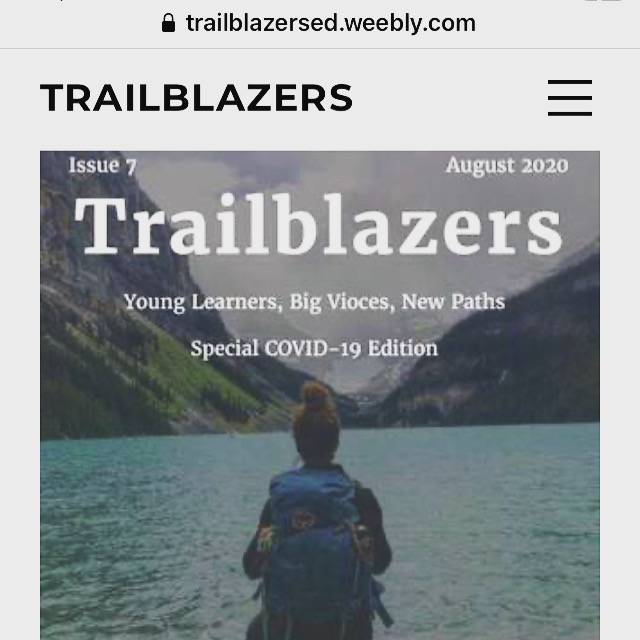I have officially submitted my last assignment of the term which means I have also officially completed my NZ exchange!!! Kind of crazy to think 8 months have gone by already and I only have two weeks left in the country before I head back to the US.
One of my classes this term was a philosophy course called “The Big Questions” – basically it was like a philosophy sampler course. The final topic we covered was “epistemology,” ie the study of knowledge. Talking about knowledge so much, and just thinking about why I even bothered to study philosophy, made me think about the term “life long learner,” and how often times schools will make statements about how they want to create/nurture life long learners.
Taken at face value, a life long learner is someone who continues to learn new things throughout their life span; it’s the notion that learning can and should happen beyond formal education. I think this is a super valid goal for schools to have; I mean why would we ever want for people to stop learning? I wonder though, what if this isn’t a lofty enough goal?
The way I see it there are 3 general outlooks one could have on the idea of learning beyond formal education:
- Someone could be really stubborn and not willing to learn new things in adulthood. Either they think they already know best, or are too lazy to care about learning anything new.
- Someone could accept that the world is constantly changing and new things must be learned in order to stay relevant in the work force.
- Someone could just really enjoy learning, so they learn even things that maybe aren’t particularly “relevant” or “useful.”
I would argue that outlook 2 is a “life long learner” – someone who continues to learn beyond education in order to better themselves. This is great, especially considering I have met various people in my life with outlook 1 and they are very challenging to work with… But wouldn’t it be awesome if more people had outlook 3?
The difference is about motivation. Are people learning because they are motivated by the need to learn in order to achieve specific work goals or are they motivated to learn simply because they enjoy learning?
I’m sure some educators would argue that when they use the term “life long learner” they are implying the ideals of outlook 3, and truthfully they desire for their students to become adults that genuinely enjoy learning. But I think it could be important to make this distinction more clear, because they truly are two different outlooks.
I’ve found this applicable to my past semester because every week I would find myself thinking about why I bothered to take philosophy. I mean half the times our discussions would end with someone saying something to the extent of, “Yeah maybe we will never know, but for practical application we can just ignore that.” Sure philosophy probably has enhanced my ability to craft an argument and think outside of the box, but on the whole studying philosophy to me is kind of the epitome of learning just for learning sake because often times conversations just go in circles and there is no true conclusion or any outcome that will necessarily be applicable to work or life. It’s all just thoughts and wonders and learning about other peoples thoughts and wonders. This isn’t to trash on philosophy – I really enjoyed the course most of the time – it’s just to say that studying philosophy feels like the sort of thing that one would only study because they truly enjoy learning not just because they are trying to learn some skill or concept in order to stay work relevant in a changing world. Studying philosophy therefore seems to require something more than just being a life long learner.
And obviously there are more things that fit into this scenario besides just studying philosophy; I’m not trying to say we should aim to have every student want to take a philosophy course. Think about this scenario: an engineer who decides to learn more about excel to potentially move into a managerial role I would consider a life long learner. An engineer that decides to learn the bagpipes just because I would also consider a life long learner. But these two things don’t quite feel comparable.
I’ll admit I don’t know the best term to use to describe the bagpiping engineer / anyone who poses an outlook 3 view of learning. Right now though I’ve been going with the term “life long explorer,” but I could easily be convinced a different word is more appropriate. I just really think it would be neat if schools made this distinction and decided to strive for more than just fostering people who continue to learn in adulthood, because honestly being a life long learner is starting to feel pretty status quo and not really much of a goal for education. As our world continues to change at ever increasing rates, it seems almost impossible to not be a life long learner anymore. And just like in gymnastics, once it gets to a point where everyone is doing a double back tuck and that just becomes the norm, then that’s no longer a very impressive goal, so standards have to change and the bar needs to be set higher.
Perhaps the reason schools don’t specify this distinction is because outlook 3 requires a value that from my experience isn’t emphasized at school: fun. If students are to continue learning throughout their life due to intrinsic motivation – “just because” – then they need to believe that learning is fun. This kind of thinking always make me wonder, “Wouldn’t it be awesome if students wanted to come to school? Like if you walked into a classroom and asked every student why they were here today and the response was, ‘Because I want to be. School is fun.'” I feel like that’s the dream, but the idea of striving for school to be fun never really seems to be expressed in school mission statements or community announcements, at least not in my experience.
If we made it a goal though to not just create life long learners, but to develop life long explorers in the world then I wonder if we would start to talk more about fun and if we would start hearing more students excited and wanting to come to school. Those students already exist, and I’d bet that there are even some school that make these goals explicit that already exist, but I would like to see this on a larger scale. I would like us to strive for more than life long learners because this no longer feels challenging enough to be stated as an end goal for formal education.








